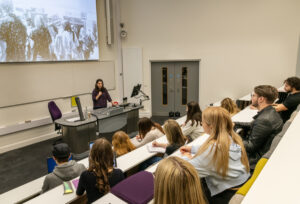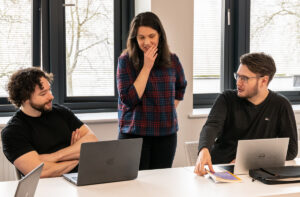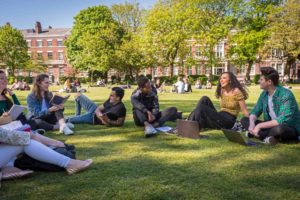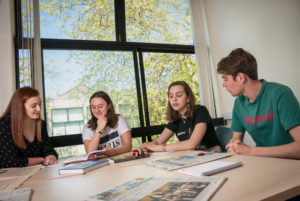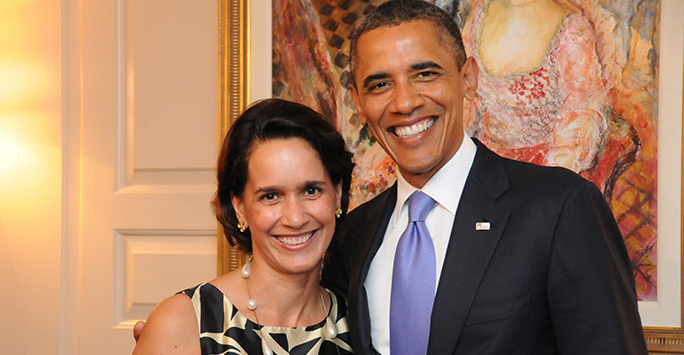How you'll learn
Philosophy: In studying Philosophy, you will learn how to defend your views with reasoned arguments, and to assess the arguments of others. Argumentative skills are learned through attending lectures and reading philosophical texts, developed by group seminar discussions, and formally assessed through essays and exams. You will complete modules to the value of 120 credits per year, from a wide range of options available. Most modules employ a blend of lectures, seminars, and online support materials. You will learn by reading and studying outside class time, by attending and participating in classes, by doing coursework and, for dissertations, via one-to-one meetings with a supervisor. There is also scope, both formally in the placement module and informally, for you to develop practical skills by volunteering.
Politics: Research-connected teaching is initiated in the first year with introductions to quantitative, qualitative, theoretical, and critical methodologies, which are then embedded in second- and final-year modules so that students can evaluate and apply the methodologies to construct their own analyses. Though our lectures are interactive, our seminars, workshops, computer lab sessions, dissertations, and placements form the core of our active-learning approach.
How you're assessed
Philosophy: Philosophy employs a mixture of modes of assessment: exams and coursework in many different varieties including essays, oral presentations, dissertations, exercises, and supported independent work (eg in the placement module).
Politics: We use a rich variety of assessment methods to develop students’ various skills. Essays, exams, and presentations enable students to practise core academic writing and speaking skills, while innovative assessments such as blog posts, reflective logs, group projects, podcasts, radio broadcasts, and speeches expand our authentic assessment, enabling students to deploy transferable skills in various formats. Digital fluency is also developed in different ways, including sourcing relevant material, using online learning platforms and tools, producing audio and visual materials, word processing, and statistical analysis.
Liverpool Hallmarks
We have a distinctive approach to education, the Liverpool Curriculum Framework, which focuses on research-connected teaching, active learning, and authentic assessment to ensure our students graduate as digitally fluent and confident global citizens.
The Liverpool Curriculum framework sets out our distinctive approach to education. Our teaching staff support our students to develop academic knowledge, skills, and understanding alongside our graduate attributes:
- Digital fluency
- Confidence
- Global citizenship
Our curriculum is characterised by the three Liverpool Hallmarks:
- Research-connected teaching
- Active learning
- Authentic assessment
All this is underpinned by our core value of inclusivity and commitment to providing a curriculum that is accessible to all students.
